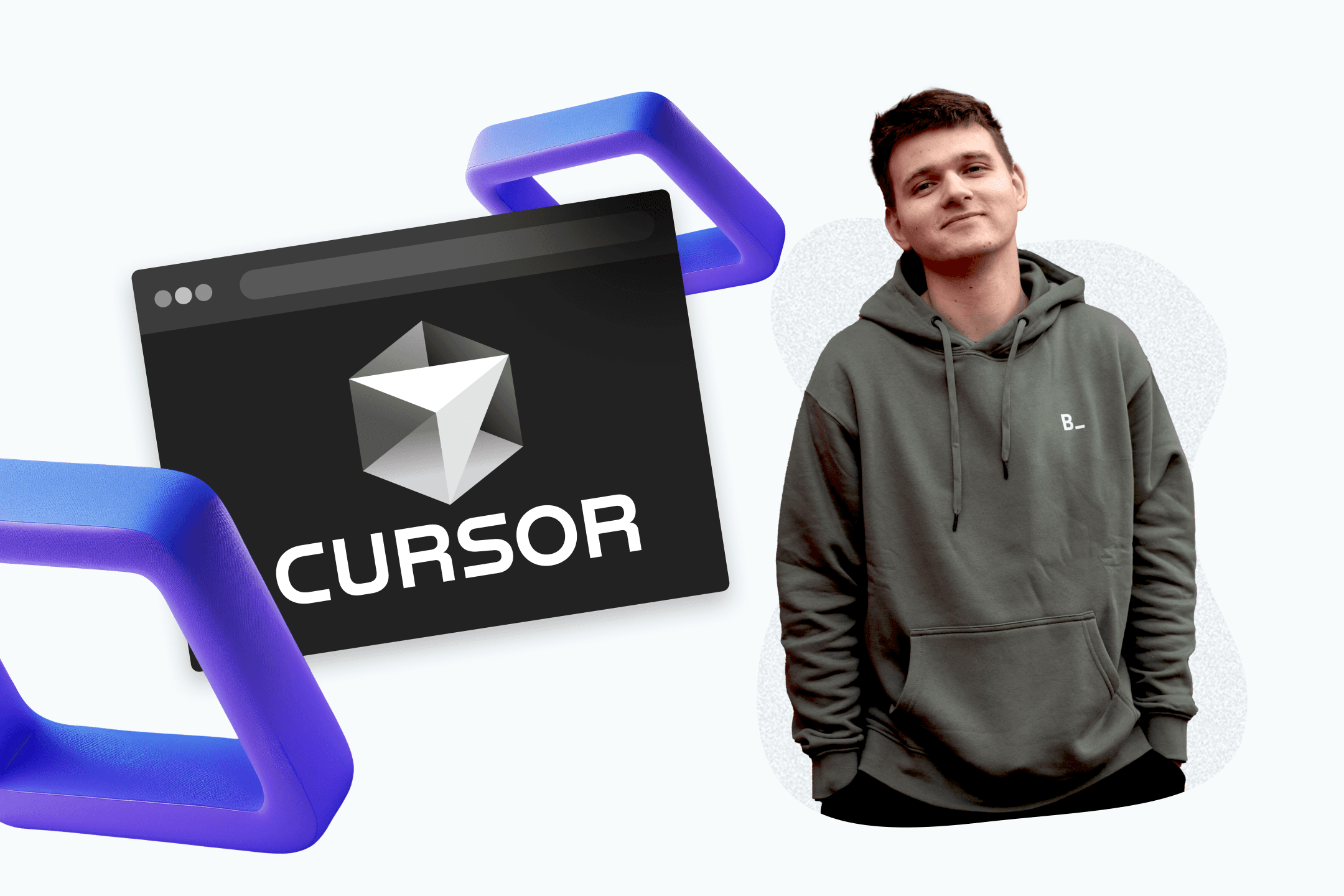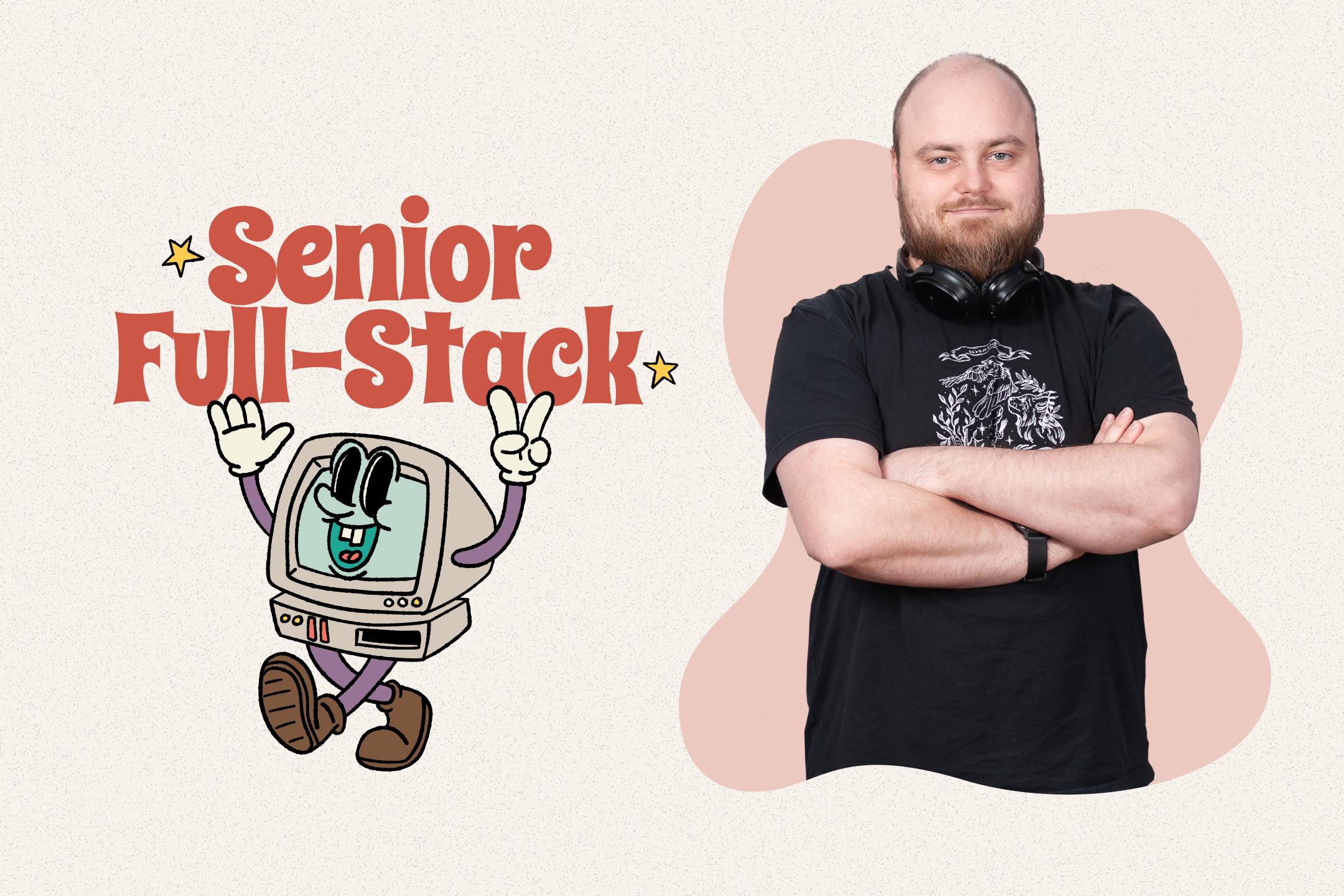
What Tools Does a Senior Full Stack Developer Use?
Welcome to first episode of our “Developer’s Tool Set” series, where we dive into the technologies and workflows that power our engineering teams. Today, we’re focusing on the toolkit of a Senior Full Stack Developer - the key tools they rely on to build, maintain, and scale our applications efficiently.
This article takes the form of an interview with one of our senior developers, offering firsthand insights into their daily workflow. We’ll explore not only the technical stack - backend frameworks, frontend libraries, cloud infrastructure, and DevOps tools - but also some more casual topics. Expect answers to questions like: What’s your favorite mobile app? Which browser do you use? Do you prefer dark mode or light mode?
Whether you’re an aspiring full stack developer or just curious about our tech ecosystem, this guide will give you a behind-the-scenes look at how our team works.
Let’s dive in!
Łukasz Duraj, Senior Full-Stack Developer.
I have 13 years of experience. I mainly program in PHP and NodeJS. Additionally, I have worked commercially with Java and Python on the backend, as well as with various frontend tools - from jQuery and Angular 1 to React, React Native for mobile, and React frameworks like Remix and Next. I also focus on application architecture on the backend and cloud infrastructure (AWS/GCP).
Essential Tools
I use the entire IntelliJ suite - PHPStorm, WebStorm, IDEA, and PyCharm. These tools provide a very rich feature set. The most important tool for me is always the debugger, whether it’s XDebug integration in PHPStorm or running applications with built-in framework tools. It’s crucial for me to be able to step through an application from checkpoint to checkpoint.
Additionally, integrations with Docker, databases, and Git (such as performing Code Reviews directly in the editor) are indispensable.
Languages & Frameworks
It depends on the project. I prefer working without a framework or with micro-frameworks. In PHP, these would be Symfony-based micro-frameworks, and in Python, Flask. However, I most often work with:
-
Nest.js in NodeJS
-
Symfony/Laravel in PHP
-
Django in Python
Code Management & Collaboration
I only use Git, as SVN is rarely used nowadays. I’ve worked with GitHub, GitLab, and Bitbucket, and I don’t have a strong preference between them. For team collaboration, it depends on the project. I mainly use Slack, but I’ve also worked with Discord and even Gadu-Gadu back in the day.
For project management, I’ve used many tools, including Jira, Trello, Asana, Phabricator, and YouTrack. However, Linear has recently won me over with its fantastic process automation features.
DevOps & Deployment
I work extensively with CI/CD and have set up CI/CD pipelines from scratch using GitHub Actions, GitLab CI/CD, Bitbucket Pipelines, CircleCI, and Jenkins - depending on project needs.
For monitoring and logging, I primarily use Sentry, but I also rely on AWS CloudWatch and GCP logs. I’ve worked with Datadog and Grafana logs as well.
Productivity & Workflow
I use Google Keep for quick notes and Google Calendar to manage everything I need to remember or schedule. I’ve tried many productivity tools, but none worked for me in the long run. At one point, I also used the Pomodoro technique quite often.
Learning & Self-Development
Mainly conference talks. I also buy books on software architecture and take courses from DevStyle. I follow materials published by Bottega IT Minds.
All-Time Favorite Tool
Docker ❤. That's my primary tool. Except the NVM for managing NodeJS versions, I don’t have any installed tools - I set up everything locally using Docker. This allows me to virtualize any environment and tools I need. Most tools also have Docker images, so testing them is as easy as pulling the right image.
Quick Questions
-
MacOS, Windows, or Linux? → Linux
-
Light mode or dark mode? → Dark mode
-
Which browser do you use? → Chrome
-
Favorite browser extensions? → Grammarly, Simple Translate
-
Your favorite mobile app? → Recently fell in love with BookBeat


